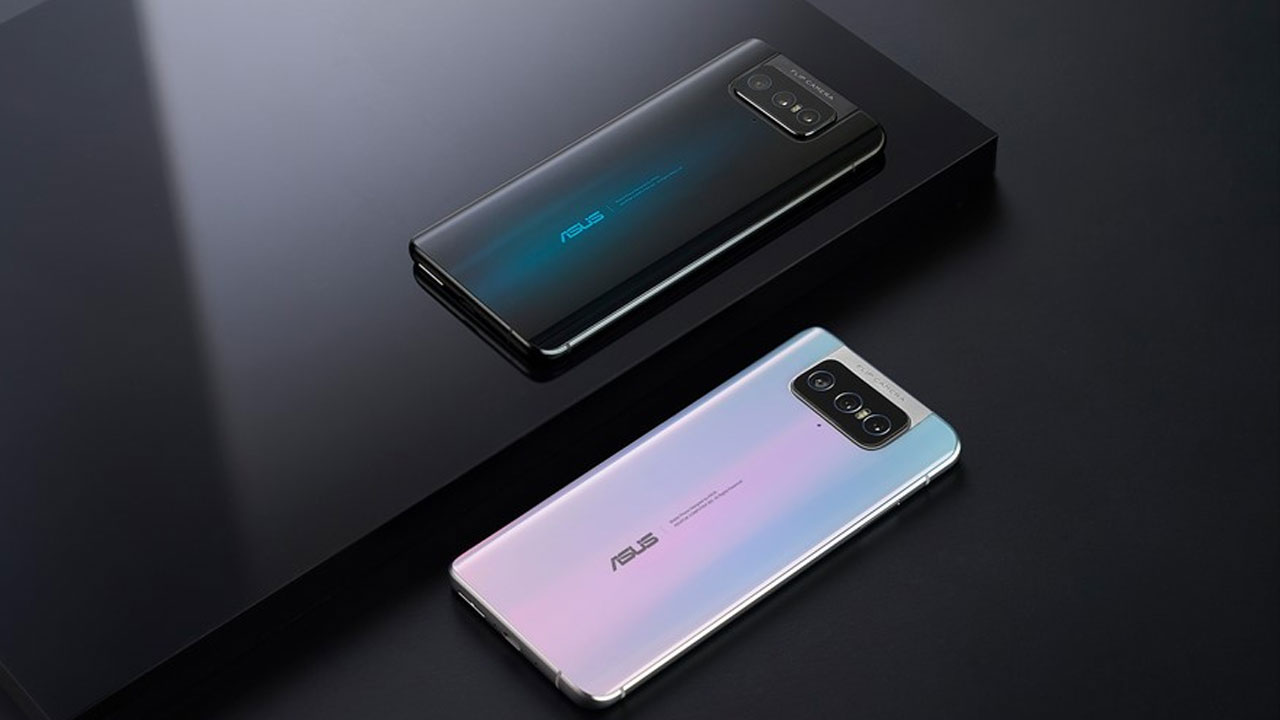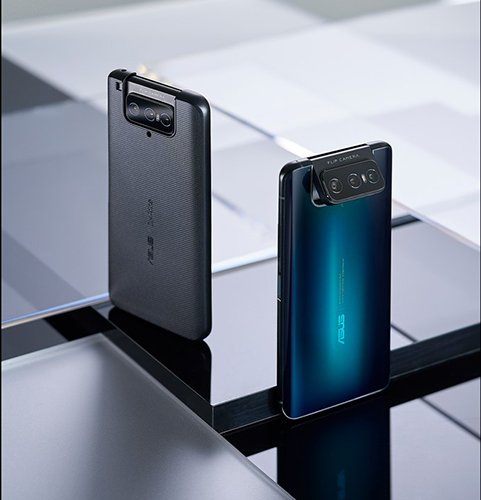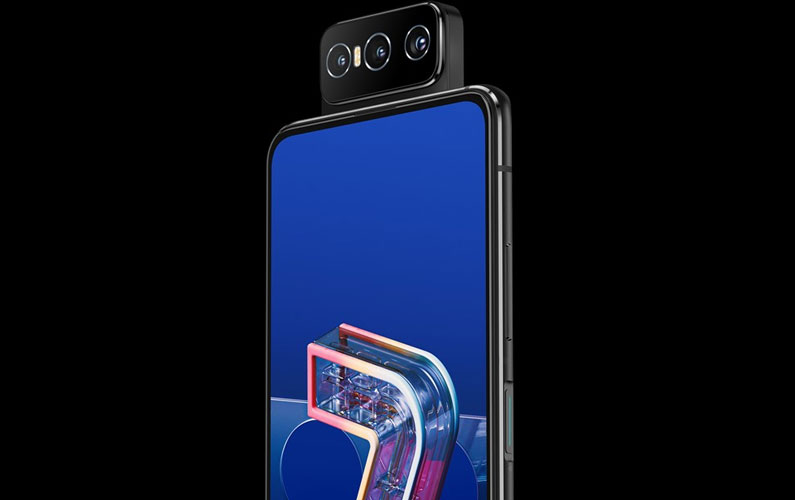
ASUS confirms the launch of its new flagships, the Asus ZenFone 7 and Asus ZenFone 7 Pro , which continue to bet on the rotating camera mechanism that debuted in the last generation. Both devices are practically identical and the differences are broken down as follows: processor, amount of memory installed and presence of optical image stabilization (7 Pro) VS electronic image stabilization (ZenFone 7 standard). With this in mind, it is time to meet them.
Asus ZenFone 7: Strong design with rotating camera: Asus ZenFone 7 and ZenFone 7 Pro, the new flagships with flip camera
With dimensions of 165.08 x 77.28 x 9.6 mm and a weight of 230 grams for both terminals, we can safely say that the new Asus flagships are bulky and not exactly light, but it was to be expected. The chassis is made of aluminum and the glass back cover is protected by Corning Gorilla Glass.

However, the most striking element is the Flip Camera , which is capable of assuming specific angles and rotating or pivoting the module 180 ° degrees to take selfies , take panoramic shots and even track objects / subjects in video. The company explains that the camera’s mechanism is made of liquid metal and that it can be moved both manually and automatically using the camera’s dedicated app.
The Flip Camera is backed by acceleration and gravity sensors that detect when the phone is falling , so that it can retract in time to resist impact and preserve itself.

Moving on to the front, here we will get an impressive 6.67-inch AMOLED screen with FullHD + resolution that is totally free of notches and frames. To up the ante Asus has installed an HDR10 + compatible panel that exhibits a 90Hz refresh rate alongside a 200Hz sample rate for unprecedented smoothness. Additionally, the brightness reached by the screen is 700 nits and covers 110% of the DCI-P3 color gamut.
Hardware and Features
In this sense, the Asus ZenFone 7 is powered by a Snapdragon 865 chip with 6GB or 8GB of RAM coupled with 128GB of internal storage (UFS 3.1); meanwhile, the Pro version mounts the Snapdragon 865 Plus along with 8GB of RAM and 256GB of internal storage.
Despite these differences, both terminals support Micro-SD cards up to 2TB and are powered by the same 5,000mAh battery with 30-watt fast charge. Interestingly, there is no wireless charging, but Asus ensures that a full battery has enough juice for two days of use.

As you might expect, the operating system is none other than Android 10 alongside Asus’ ZenUI 7 user interface. Wireless connectivity options range from 5G to 4G, through Wi-Fi 6, Bluetooth 5.1, NFC, and GPS (including Glonass, Galileo, and BeiDou).
Flip Camera
The Asus ZenFone 7 and ZenFone 7 Pro’s camera not only uses an ingenious mechanism, but it also has cutting-edge photographic technology, starting with a 64MP Sony IMX656 main sensor with Pixel Binning . As a secondary sensor, it has a 12MP Sony IMX636 that acts as a wide angle, providing a field of view of 113 ° degrees to the whole. Finally, it consists of an 8MP telephoto lens with 3x optical zoom.

The only difference between the Asus ZenFone 7 and its older brother is that the latter enjoys optical image stabilization, while the former stays with EIS (electronic stabilization).
Availability and price of the Asus ZenFone 7 and Asus ZenFone 7 Pro
Asus has yet to confirm the price of its new flagships, but at least we know that they will be on sale on September 1 of this year.





